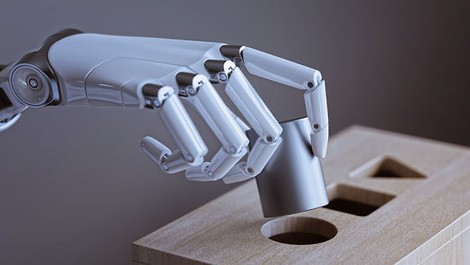Your podcast discovery platform
Curious minds select the most fascinating podcasts from around the world. Discover hand-piqd audio recommendations on your favorite topics.

piqer for: Global finds Technology and society
Roshawn Terrell is a machine learning and AI researcher for Ethicsnet.com. He studies neuroscience, cognitive science, and artificial intelligence. He is a guest-lecturer at Oxford, where he will be leading a research team to look into applying his and colleague's findings to building more sophisticated artificial intelligence.
Why Self-Taught Artificial Intelligence Has Trouble With The Real World
Listen to this podcast from Quanta Magazine, covering the current state of the art of artificial intelligence, and why current techniques still have trouble with the real world.
The first notable achievement was probably when IBM's Deep Blue computer beat Garry Kasparov at chess in 1997. They did this in part by building their algorithm based off of centuries of chess wisdom. There have been many chess engines since then, with the most powerful being Stockfish, capable of analyzing over 70 million moves per second. Chess was beat, though only through brute force calculation.
However the game of Go is a much tougher nut to crack. As simple as the rules may be, Go is a game of profound complexity. There are an astonishing 10 to the power of 170 possible board configurations – more than the number of atoms in the known universe – making Go a googol times more complex than chess. You literally wouldn't have enough matter in the universe to build a computer capable of calculating all the possible moves. Which is why it's so fascinating that the human brain can handle the game so well.
Only recently, with the power of algorithms modeled on the human brain, have we been able to conquer Go.
The problem with all of these games, though, is that they are games of 'perfect information,' which means the players see everything that's happening on the board at all times. The real world, however, is mostly comprised of 'hidden information,' where you don't have all the variables, and yet you still must make a decision.
Currently, Deepmind – the company that built the algorithm that conquered Go – is setting its eyes toward a game known as StarCraft II, a real time strategy game of immense complexity in which players must make decisions based on hidden imperfect information all the time. The battlefield in the game is covered in a 'fog of war,' allowing the enemy to obscure their positions.
If a game like StarCraft II can be beat, then we come one step closer to creating true AI.
